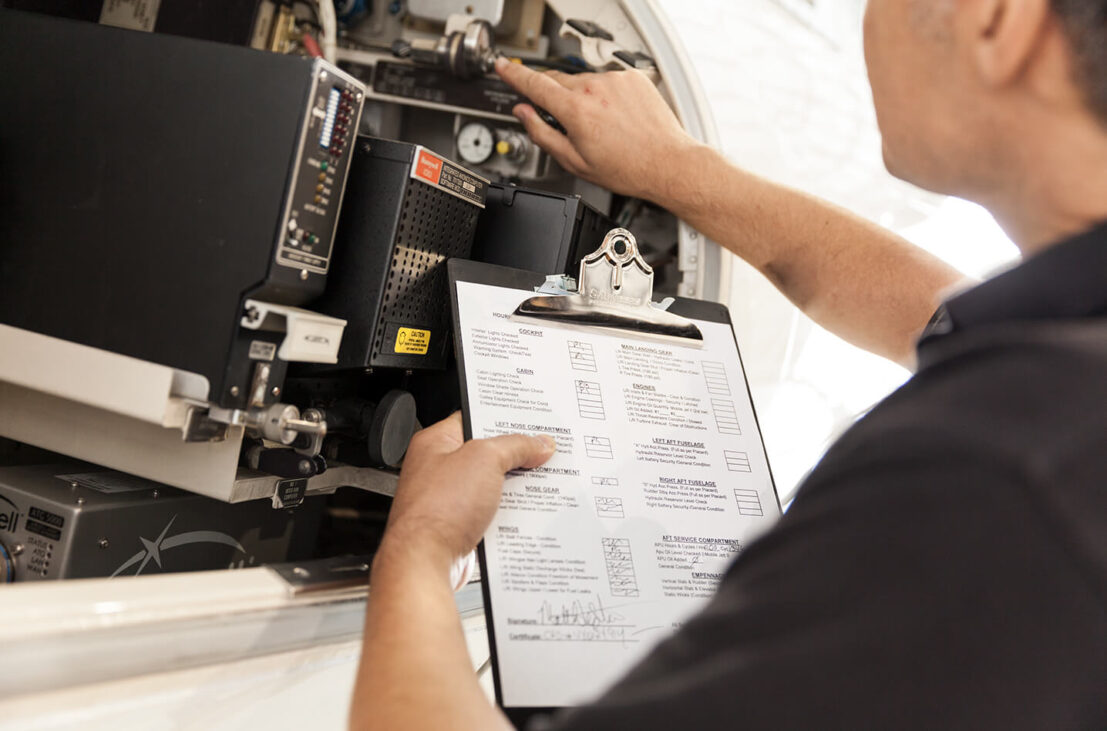
Review common misperceptions related to FDM, narrative safety reporting, ASAP, ASIAS and FOQA and get real answers from NBAA’s Safety Committee.
Cost
- Myth:
- Data collection and sharing is really expensive.
- Fact:
- The cost of data collection and sharing is minimal when compared to the cost of operating a business aircraft. If your operation says it cannot afford the cost of safety data collection and sharing, then the problem is likely rooted in a poor safety culture, with safety appearing not to be a priority.
- Fact:
- Some aviation insurance carriers offer discounts for those participating in safety management systems (SMS) and data collection and sharing programs. These discounts can be substantial and can offset some of the costs.
- Fact:
- Data collection and sharing can result in more efficient flight operations, thus reducing costs.
Employee Resources
- Fact:
- It does take human resources hours to implement and maintain safety data collection and sharing.
- Fact:
- If your operation does not accommodate these safety critical efforts, then the problem is rooted in your safety culture.
Aircraft Equipment
- Fact:
- Some aircraft do not have the equipment to implement a FOQA/FDM program.
- Myth:
- I can’t retrofit my aircraft for FOQA/FDM because it is really expensive.
- Fact:
- There are several low-cost FOQA/FDM retrofit options today for many legacy aircraft.
- Fact:
- When you order a new aircraft, FOQA/FDM capability may not be included automatically, but the cost to equip the aircraft at delivery is very small, relative to the cost of the aircraft.
- Myth:
- The incentive and benefits of implementing data collection and sharing are not worth implementing.
- Fact:
- There are large safety and other benefits of implementing data collection and sharing for all types of operators, large and small. An effective safety culture is required to understand and achieve these benefits.
- Fact:
- Some aviation insurance companies offer substantial discounts for operators participating in safety-related data collection activities and programs.
Incentives and Benefits
Generating Enough Data
- Myth:
- As a small operator, I don’t generate enough data to be useful.
- Fact:
- Even the smallest amount of FOQA/FMD and narrative data can surface potential risks specific to your operation. Through data sharing and aggregation initiatives, you can benchmark your operation against your peers, and see safety trends across the industry to improve your operations.
Security/Privacy of Data
- Myth:
- The companies and institutions holding my data might be hacked and my data might be leaked.
- Fact:
- While a data breach is theoretically possible, the NBAA Safety Committee has never received a report of this happening in the 15+ years of aviation data collection and sharing. In most cases, shared data is stored in a de-identified state and encrypted to further protect the source of the data. You should ensure that any provider you use takes steps to protect your data. If they do not, find another vendor that does.
- Myth:
- In the event of an accident or incident, it is likely the companies holding my data will be subpoenaed to release my data to a legal entity.
- Fact:
- While a subpoena to a data collection entity is possible, aviation legal experts state that a subpoena is likely to come directly to the operator and not to the data collection entity for this information. The NBAA Safety Committee is not aware of a subpoena ever being issued to any aviation data collection or sharing entity after an accident or incident.
- Myth:
- If the FAA has access to my FDM or narrative reporting program, the data may be released through the Freedom of Information Act (FOIA).
- Fact:
- Advisory Circulars 120-66C (ASAP), and 120-82 (FDM) designate data voluntarily submitted to the FAA as protected under 14 CFR Part 193, and therefore cannot be released.
Liability
- Myth:
- Collecting data about my operation makes me more liable as it can be used against me in the event of an accident or incident.
- Fact:
- Aviation legal experts state that not participating in data collection increases liability, as it demonstrates a weak safety culture by intentionally not initiating safety programs that can improve safety.
Approval From My Legal Office
- Fact:
- It can be challenging to get approval from my legal office to participate in data collection and sharing.
- Fact:
- Legal offices may not understand the potential benefits of participating and pitfalls of not participating. The legal office must be educated about the many benefits of these programs and the increased liability of not participating.
“Big Brother”
- Myth:
- If I collect data about my operation, “Big Brother” will use it against me.
- Fact:
- If “Big Brother” is your own management and your operation has a Just Culture and written policies and procedures governing the use of data, then the data will not be used against you, unless you exhibit dangerous or egregious behavior.
- Fact:
- If “Big Brother” is your own management and they use the data against you, then you have a culture problem that must be resolved.
- Fact:
- If “Big Brother” is the FAA, they cannot see the data you collect and cannot use it against you (unless you voluntarily submit the data directly to the FAA).


 International Business Aviation Council Ltd.
International Business Aviation Council Ltd.